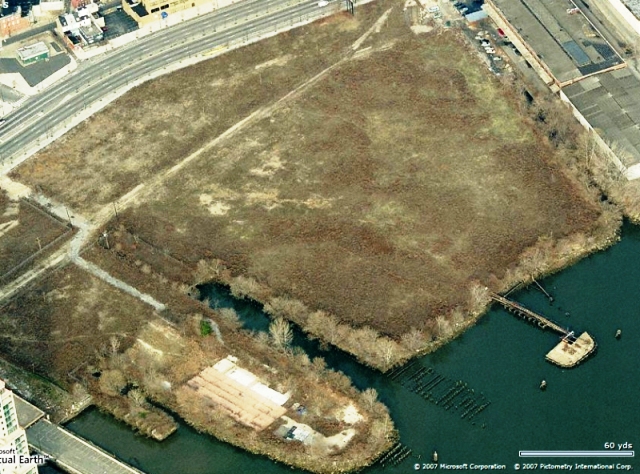Breaking: casino test piling controversy

July 20
By Kellie Patrick Gates
For PlanPhilly
SugarHouse Casino has asked the U.S. Army Corps of Engineers for permission to drive some test pilings at their Delaware Avenue site. But some of the people advising the Corps on the SugarHouse project say no test pilings should be allowed until the historic review process is over, because the piles could damage any artifacts that remain underground.
SugarHouse recently had some geotechnical work done on the site – basically a soil study. SugarHouse wants to do the test pilings to test the recommendations that came from the study, said Spokeswoman Leigh Whitaker.
“The geotechnical investigation resulted in the conclusion that we need to design and install a certain type of pile, extending a certain depth, capable of supporting certain loads. Test pilings will test and confirm that conclusion,” she said.
The test isn’t optional: “This requirement is standard for all projects in the City where a pile has been designed to support more than 40 tons,” Whitaker said.
The Army Corps is involved with SugarHouse because the casino needs a permit from the agency to build its Delaware Avenue project as planned. Federal law requires a historic review, with steps taken to preserve the history of the site, before a permit can be issued.
The test pilings would not be in the river, but “upland,” said Corps spokesman Khaalid Walls. “We are looking at their proposal to make sure that it would not affect our ongoing process with the archaeology (i.e., would not affect any areas where further study or work is needed),” Walls wrote in an email.
The Corps will discuss the matter with the Pennsylvania Historical and Museum Commission, the Advisory Council for Historic Preservation, and the Corps archaeologist from Texas that the Philadelphia division has recently begun working with on the SugarHouse project, he said.
The Corps has already heard from some of the consulting parties – a group of local people from various backgrounds who applied to advise the Corps on the SugarHouse project – and will likely hear from more.
“I think that any talk of doing test pilings on site is completely inappropriate while Section 106 investigations (the historic review process) are still ongoing,” said Douglas Mooney, who is president of the Philadelphia Archaeological Forum.
Historian Torben Jenk said that the pilings could destroy any remains of Batchelor’s Hall, a social club whose members included John Bartram and many other prominent Philadelphians, as well as early shipyards. SugarHouse says no evidence of Batchelor’s Hall has been found at the site, but Jenk contends they are using faulty maps and as a result have not looked in the right place (SugarHouse has said they stand behind the maps they use.).
Walls, the Corps spokesman, could not provide a time frame for the Corps’ decision about the test piles. “After we have coordinated with our archaeologist, as well as PHMC and ACHP, we will let the applicant know our determination,” he said.
Whitaker said the work would not be done without the Corps’ blessing. “All work that we have undertaken on the site has been in compliance with the Section 106 regs and all guidance we receive from the Army Corps and PHMC,” she said.
Contact the reporter at kelliespatrick@gmail.com
WHYY is your source for fact-based, in-depth journalism and information. As a nonprofit organization, we rely on financial support from readers like you. Please give today.



